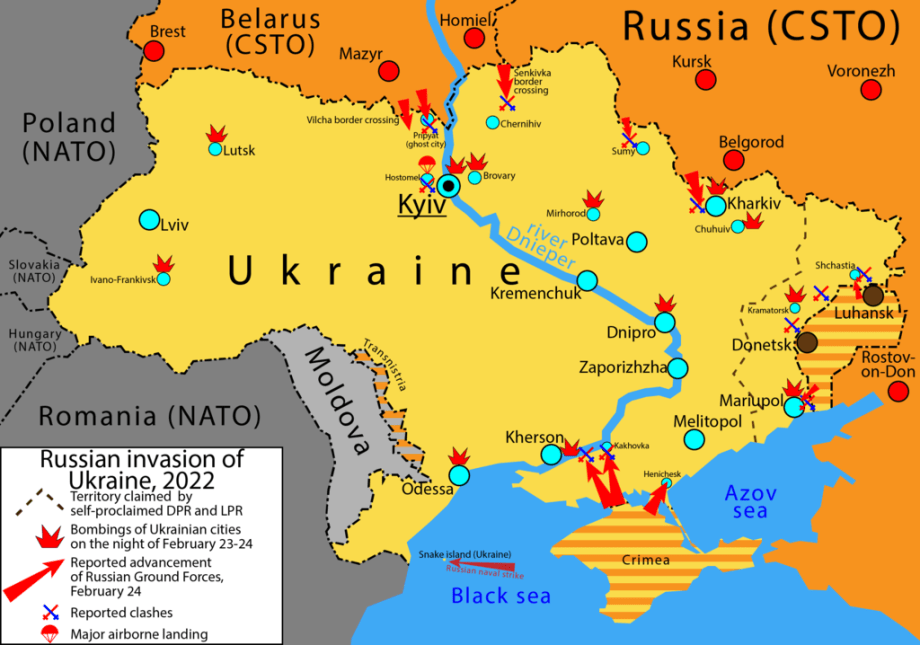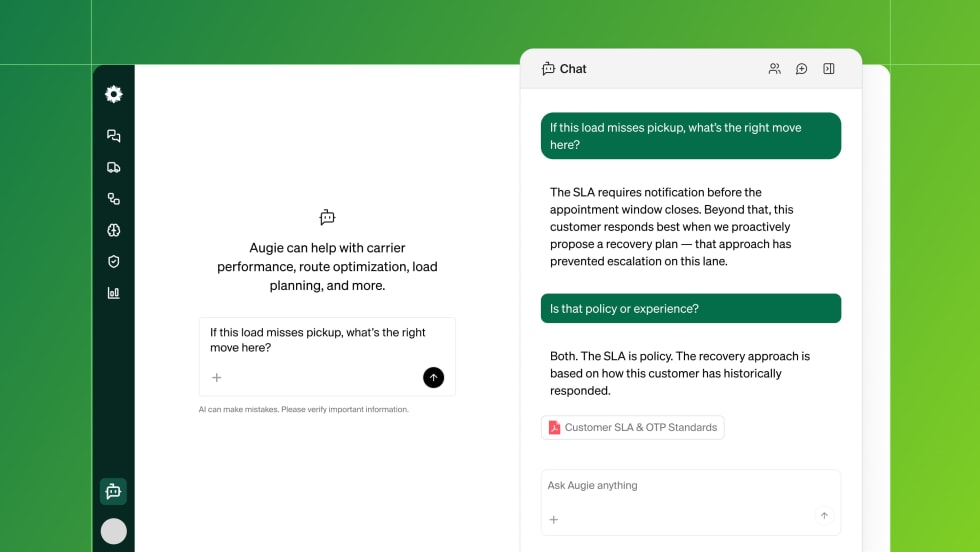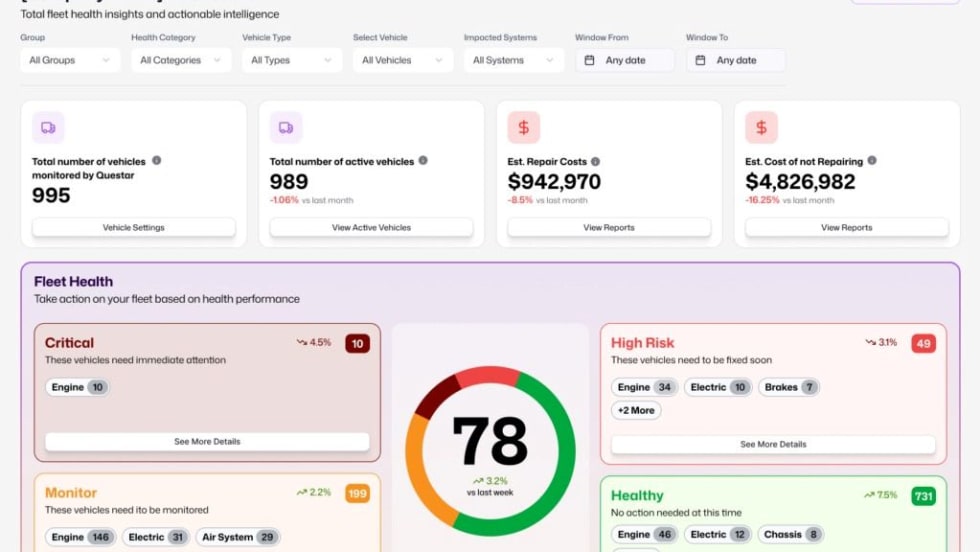Russia’s invasion of Ukraine could have ripple effects throughout the supply chain and trucking, as oil prices have soared and cyber security experts say cyber attacks won’t likely remain inside Ukraine’s borders.
Crude oil futures, which already had been on the rise, jumped to over $100 a barrel for the first time since 2014 when looking at Brent crude, a global benchmark. Europe depends on Russia for supplies of oil and natural gas, and Ukraine is a major transit route for both. On top of that, Russia could react to harsh sanctions imposed by the West by cutting oil exports in retaliation.
U.S. on-highway diesel fuel prices (including taxes) reported by the Department of Energy as of February 21, three days before the invasion, had already risen to $4.055 per gallon — $1.08 higher than a year ago. Crude oil prices typically make up just over half of the price of a gallon of diesel, so fluctuations in oil prices are usually followed by diesel price changes.
“I don’t think we’re necessarily looking at the fuel apocalypse,” said Tom Kloza, energy analyst with the Oil Price Information Service in the Chicago Tribune, “But we’re in for a few months of higher prices.”
Kloza said in a tweet that Goldman Sachs has moved up its $125 per barrel Brent forecast to summer 2022 from summer 2023. That would equate to $4.25-$4.75 gal pump prices for gasoline and diesel, with California over $5 for both, he said.
Goldman Sachs moves up its $125 bbl Brent forecast to summer 2022 (from summer 2023). I'm not necessarily a believer, but that would equate to $4.25-$4.75 gal pump prices for gasoline and diesel (ex California which would be above $5 gal for both).
— Tom Kloza (@TomKloza) February 24, 2022
President Biden has said his administration will work to stabilize global energy prices at the same time imposing sanctions. Sanctioning Russia’s oil exports — one of the country’s main sources of revenue — is not an option on the list of targets, said one lobbyist working with Congress on the prospective punishments, reports Politico.com.
Beyond that, there isn’t a great deal the administration can do to bring down prices, according to the report. “The actions he has taken so far, such as releasing tens of millions of barrels of oil from federal emergency reserves, have done little to bring down prices,” points out Politico.com, “and other options available to him, including suspending the federal gasoline tax, face major hurdles in Congress.”
Cyber Security Concerns
The federal government’s Cybersecurity and Infrastructure Security Agency is watching closely for the possibility that the cyberattacks that are part of the Ukraine invasion could spread.
“Russia’s unprovoked attack on Ukraine, which has been accompanied by cyber-attacks on Ukrainian government and critical infrastructure organizations, may have consequences for our own nation’s critical infrastructure, a potential we’ve been warning about for months,” it said in an announcement on its website, which also offers tips for companies to step up their cyber security.
“While there are no specific or credible cyber threats to the U.S. homeland at this time, we are mindful of the potential for Russia’s destabilizing actions to impact organizations both within and beyond the region, particularly in the wake of sanctions imposed by the United States and our Allies. Every organization — large and small — must be prepared to respond to disruptive cyber activity.”
Cyber attacks against Western targets are likely, reports the Wall Street Journal.
Trucking and the supply chain have already become a popular target for hackers. Just days before the Ukraine invasion, Expeditors International announced that it had been the subject of a targeted cyber-attack.
“While our systems are shut down, we will have limited ability to conduct operations, including but not limited to arranging for shipments of freight or managing customs and distribution activities for our customers’ shipments.”














